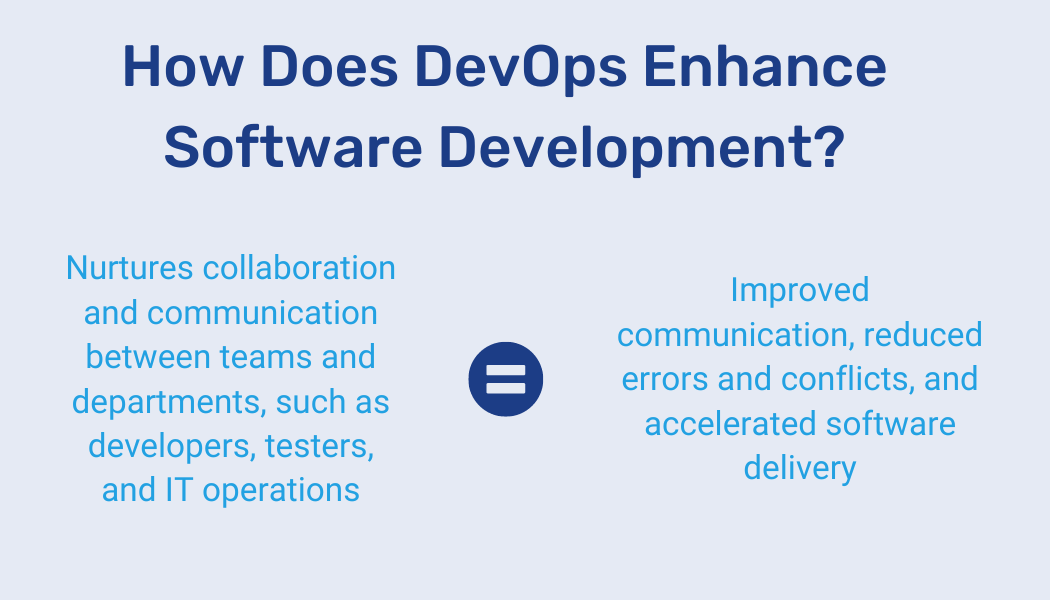
The Role of DevOps in Enhancing Software Development and Deployment
Author: Kysha Praciak
· 3 mins readIntroduction
In the rapidly evolving landscape of software development, the integration of development and operations, known as DevOps, has emerged as a pivotal practice. This blog aims to dissect the role that it plays in refining and accelerating the processes of software development and deployment, ensuring a seamless, efficient, and productive lifecycle.
Understanding DevOps
DevOps Philosophy: At its core, DevOps is more than just a methodology; it’s a culture, a mindset that fosters collaboration between development (Dev) and operations (Ops) teams. This synergy is aimed at improving and accelerating the delivery of software. It hinges on key principles like automation, continuous integration (CI), continuous delivery (CD), and proactive monitoring.
Difference from Traditional SDLC Models: Unlike the sequential approach of traditional models like Waterfall, DevOps promotes an iterative process. This ensures a dynamic and flexible environment where changes are not just expected but are embraced and efficiently managed.

The Role of DevOps in Software Development
Enhanced Collaboration: DevOps breaks down the silos between the Dev and Ops teams. This collaborative environment leads to a better understanding, quicker conflict resolution, and a more cohesive approach to tackling challenges.
Continuous Integration and Continuous Delivery (CI/CD): CI/CD are the cornerstones of DevOps. Continuous Integration allows developers to merge code changes into a central repository where automated builds and tests are run. Continuous Delivery automates the delivery of applications to selected infrastructure environments. Together, they ensure that the software is always in a releasable state.
Automated Testing: Automation is a critical component of DevOps. Automated testing ensures that any code changes do not break the product, providing immediate feedback to developers and maintaining the integrity of the codebase.
The Role of DevOps in Software Deployment
Streamlined Deployment Processes: DevOps enables automated, consistent, and fast deployment processes. This reduces the chances of human error and ensures that the software can be reliably released at any time.
Infrastructure as Code (IaC): IaC is a key DevOps practice that allows teams to manage and provision their infrastructure through code. This automation not only speeds up the deployment process but also ensures consistency across environments.
Monitoring and Feedback: DevOps emphasizes the importance of monitoring and logging the performance of applications in real-time. This proactive approach ensures that any issues are identified and addressed promptly, often even before the user is affected.
Need Expert IT Solutions?
Get a Free Consultation Today!
Whether you’re dealing with network issues, cybersecurity concerns, or software integration, our team of IT experts is here to help. Don’t let tech troubles slow you down. Call us now for a complimentary initial assessment, or click below to fill out our quick contact form. Let’s make technology work for you.
Benefits of DevOps
Faster Time to Market: By integrating and automating the development and deployment processes, DevOps significantly reduces the time to market, allowing businesses to respond to market changes more effectively.
Improved Product Quality: Continuous testing and monitoring ensure that the quality of the product is maintained throughout the development lifecycle, resulting in a robust and reliable product.
Enhanced Operational Efficiency: Automation and streamlined processes reduce the need for manual intervention, thereby reducing the scope of errors and increasing operational efficiency.
Challenges and Best Practices
Addressing Common Challenges: Implementing DevOps can be challenging. It requires a cultural shift, a thorough understanding and integration of tools, and bridging the skill gaps within teams.
Best Practices: Successful implementation of DevOps involves fostering a culture of continuous learning and improvement, choosing the right set of tools that align with your organizational goals, and continuously measuring performance against relevant metrics.
Conclusion
DevOps is not just a set of practices; it’s a culture that when embraced, can significantly enhance the efficiency and quality of software development and deployment. By fostering collaboration, automating processes, and continuously monitoring performance, DevOps paves the way for organizations to not just survive but thrive in the competitive market.
Additional Resources
For those keen on exploring DevOps further, resources like our blog and services offer in-depth insights and practical guidance on adopting and excelling in practices.





Share